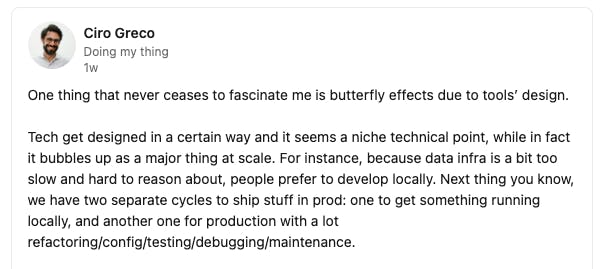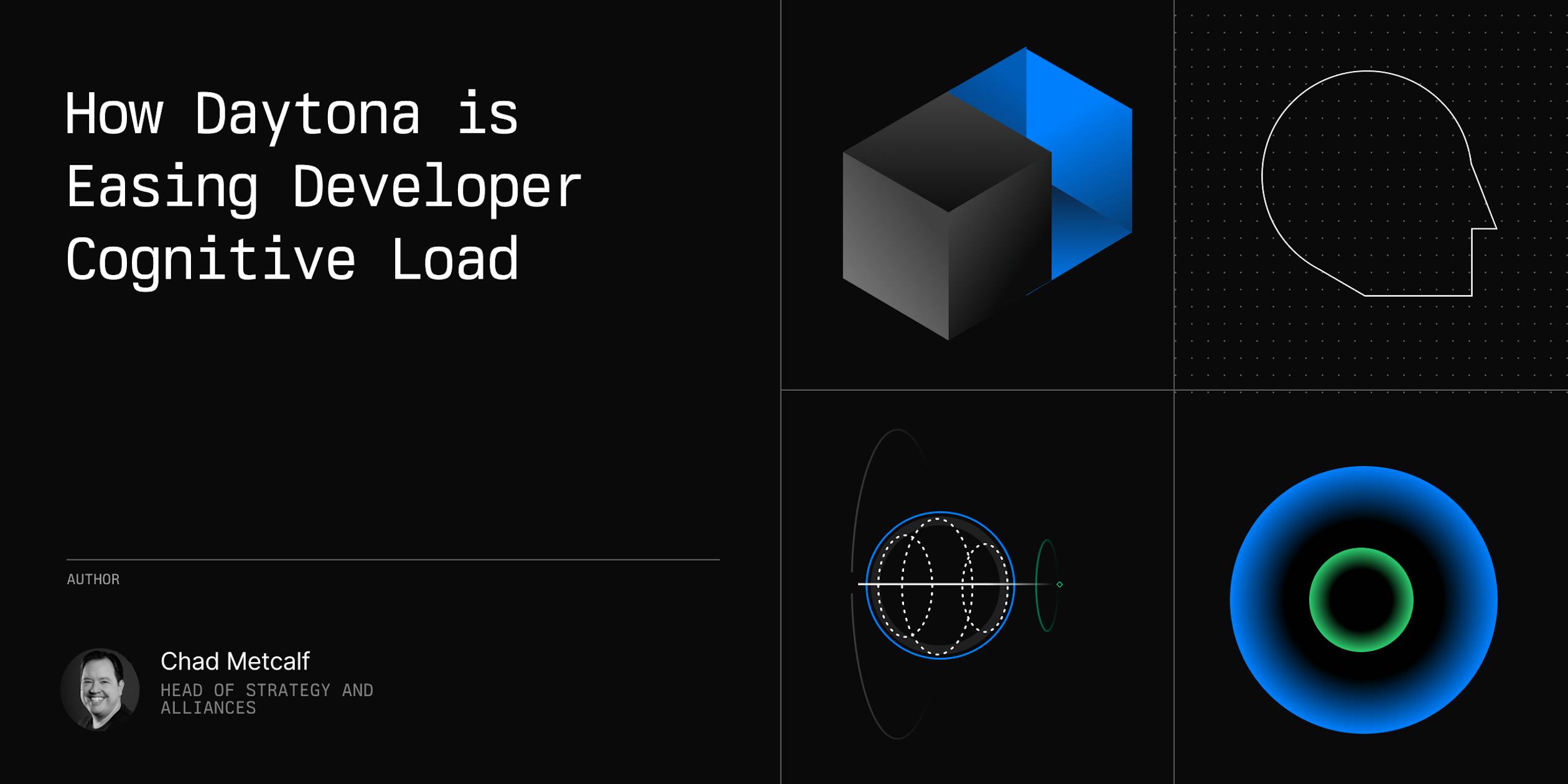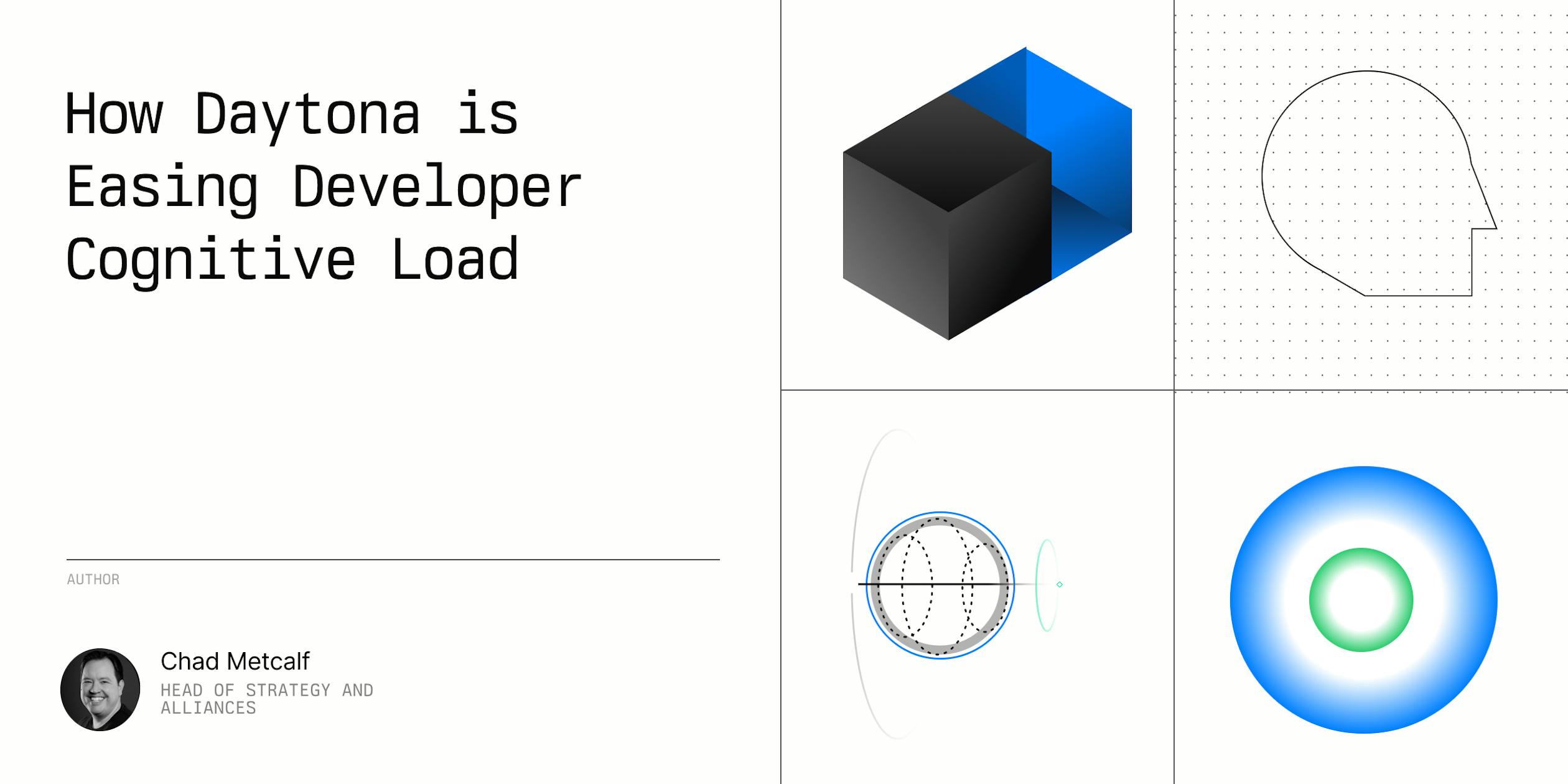I have had the opportunity to witness and contribute to two industry-changing technologies: big data and containers. My journey through Cloudera, Docker, and Daytona puts me at the intersection of data and developer experience.
The mantra I've embraced is simple yet profound: "Developers shouldn't have to reason about where the work happens." This philosophy drives the vision at Daytona—a vision of a future where the cognitive burden on developers is significantly reduced, allowing them to focus on what truly matters: creating, innovating, and solving problems.
The Silent Struggle in Development and the Role of Tools
In development, one aspect that often goes unnoticed is the silent struggle every developer endures—the struggle of navigating the labyrinthine backend processes that underpin our work. We're expected to be adept not only at writing code but also at understanding the intricate dance of deployment, orchestration, and infrastructure management. This expectation is a cognitive load, a hidden tax on our creativity and productivity.
I believe that our tools, be it a terminal or an Integrated Development Environment (IDE), should serve us—not the other way around. They should simplify our workflow, automate the mundane, and eliminate the need to micromanage the "plumbing" of our projects.
Reflecting on my time at Cloudera, I learned a valuable lesson about data gravity—a force that anchors data, making it expensive and time-consuming to move. This principle is especially pertinent in an era where data is voluminous and growing exponentially. The traditional approach would be to transport compute resources to the data. Conceptually, it sounds straightforward, but in practice, it's a Herculean task fraught with complexity.
This complexity is exacerbated when we strive to maintain a developer experience that is both familiar and enjoyable. Asking developers to navigate the technical morass of data localization and distributed computing is akin to asking fish to climb trees—it's possible, perhaps, but far from their natural inclinations and abilities.
Abstracting Computational Work
The goal for us at Daytona, and for the industry at large, should be to abstract away the underlying mechanics of where and how the computational work is executed. Developers should be able to rely on their tools to seamlessly interface with the infrastructure, regardless of whether the data resides on-premises or in the cloud.
This is where platforms like Bauplan are stepping in to build the "rest"—the invisible yet crucial scaffolding that supports the developer's work without becoming an obstacle. Bauplan is among those pioneering a future where data lakes and serverless architectures enable developers to deploy and manage data pipelines with minimal fuss.

Take, for instance, the serverless paradigm. The serverless model epitomizes this very idea of abstraction, where developers can deploy code without being encumbered by the underlying servers. As Werner Vogels, CTO of Amazon.com, famously said, "For me, serverless means that our customers don't have to think about security, reliability, managing performance, managing scale, doing failover."
Serverless computing is not without its challenges, of course. The architecture must be meticulously designed to handle the variability of workloads, and issues like cold starts and latency need to be addressed. But the core concept remains revolutionary: by decoupling the execution from the environment, we empower developers to be more efficient and productive.
The path to achieving this level of abstraction is not merely technical but also cultural. It requires a shift in perspective from the industry and a concerted effort to prioritize the developer experience. We need to foster an environment where the tools we use are intelligent enough to handle the intricacies of deployment and scaling without requiring direct intervention from the developer.
Automating and Standardizing for Efficiency
I've seen firsthand how tools and platforms can enhance a developer's workflow. Daytona's mission aligns closely with this ethos, offering a development environment management platform that streamlines the process from coding to deployment. The automation and standardization Daytona provides are a testament to what is possible when we focus on removing barriers and enabling developers to own their environments without the overhead of managing them.
Automation is the key to reducing cognitive load. By automating the setup and maintenance of development environments, we free developers from the tedium of configuration and empower them to dedicate more time to coding and problem-solving.
A standardized development environment ensures consistency and reliability across the entire organization. It allows developers to collaborate more effectively, share code, and reduce errors, all contributing to a more cohesive and efficient development process.
Lastly, owning the development environment means giving developers control over their tools and workflows. It's about creating a space where they can tailor their setup to their preferences, choose the tooling that works best for them, and install the necessary dependencies to maximize their efficiency.
As we look to the future, the challenge for us is to continue to innovate and refine these tools and platforms to serve developers' needs better. It's about understanding the pain points and addressing them with solutions that are not just technically sound, but also intuitive and enjoyable.
In conclusion, the future of development, particularly in the data sphere, hinges on our ability to abstract away the complexities of infrastructure and environment management. It's about creating a seamless bridge between the developer's local environment and the vast computational resources available in the cloud. It's about ensuring that our tools are extensions of our thought processes, not hindrances to them.
At Daytona, we're committed to this vision and excited to contribute to a future where developers can focus on what they do best: building amazing software that changes the world. The journey ahead is challenging, but the potential rewards for our industry and the developer community are immense.




